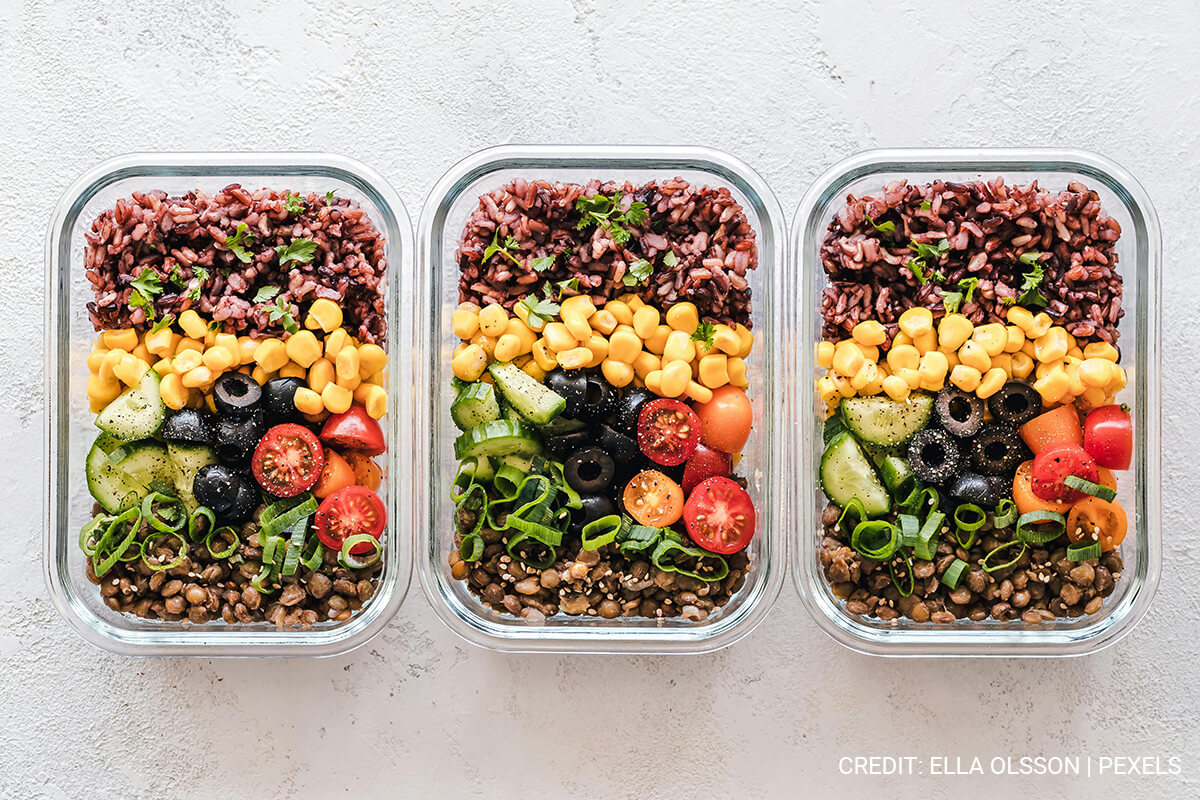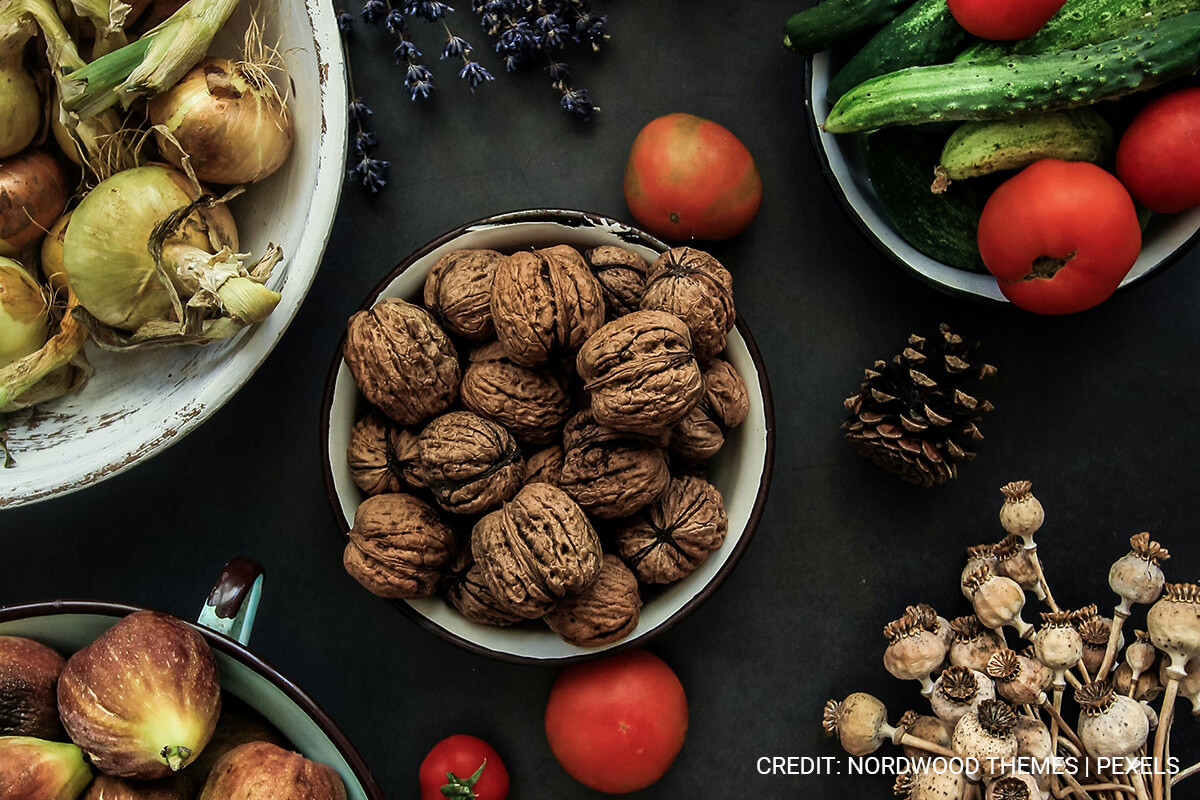How do you think losing weight happens? For many people, the answer is some combination of good exercise and a healthy diet. That much is true, but what does a healthy diet look like exactly? That healthy diet is the foundation of a healthy body (and healthy weight for that matter), and it pays to know exactly what you need to put in your body to ensure that healthy weight.
A healthy diet isn’t really about depriving yourself or finding a fad diet to adhere to; it’s about understanding how to nourish your body efficiently. This means providing yourself with the energy and nutrients you need while gently encouraging a healthy weight. With the right nutritional know-how, you can build a healthy relationship with your food and find a balance between eating foods you enjoy while also maintaining a healthy weight.
1. Prioritize Whole, Unprocessed Foods
The cornerstone of any healthy eating plan (especially when weight reduction is your immediate goal) is a focus on whole, unprocessed foods. This means opting for fruits, vegetables, lean proteins, and whole grains over packaged, refined, and highly processed items. Whole foods are naturally rich in essential vitamins, minerals, and fibre, all of which are crucial for achieving satiety and maintaining proper bodily functions. Whole foods also tend to have a lower caloric density, meaning you can consume a larger volume for fewer calouries, which helps you feel fuller for longer. Think vibrant berries, leafy greens, succulent chicken breast, and hearty quinoa – these are your friends when it comes to eating healthier.
2. Embrace Ample Protein Intake
Protein is a powerhouse nutrient when it comes to weight reduction. It helps to preserve lean muscle mass during periods of caloric deficit, which is vital because muscle burns more kilojoules at rest than fat. Furthermore, protein has a high thermic effect, which means your body expends more energy to digest and metabolize it compared to carbohydrates or fats. Incorporating more protein into your diet can contribute to a slight increase in your daily kilojoule expenditure. To that end, add more lean protein sources to every meal (some good example being poultry, fish, eggs, legumes, tofu, and low-fat dairy). A protein-rich breakfast, for instance, can set the tone for the day, reducing cravings and promoting satiety.
3. Harness the Power of Fibre
Fibre is a champion for weight management all thanks to its ability to promote fullness and regulate digestion. Found abundantly in fruits, vegetables, whole grains, and legumes, soluble fibre forms a gel-like substance in your digestive system, which serves to slow down the absorption of glucose and helps to stabilize blood sugar levels. Insoluble fibre also adds bulk to your stool, which promotes regular bowel movements, helps relieve digestive discomfort, and aids in detoxification. Both types of fibre contribute to a feeling of fullness, and help stop you from overeating. For best results, aim for a diverse range of high-fibre foods throughout your day to reap all the benefits of the variety of foods you’re eating.

4. Stay Hydrated with Water
One food item that often goes overlooked is water. As a result, some people can fail to take in adequate amounts of water during the day. Getting that adequate water intake is absolutely critical for healthy weight reduction. Water has no kilojoules, and it can help you feel full, especially when consumed before meals. It also plays a vital role in metabolism, nutrient transport, and waste elimination, all of which go a long way toward a healthier body. It also pays to keep in mind that what we might sometimes perceive as hunger is actually thirst. Keep a water bottle handy and sip throughout the day. Teas, especially teas, are an excellent water substitute (and tea itself comes with a wide range of health benefits) that may also contribute to your daily fluid intake, offering flavour to your drinks without any added sugars or kilojoules.
5. Be Mindful of Healthy Fats
While often demonized, healthy fats are essential for overall health and can play a role in weight management. Unsaturated fats (found in avocados, nuts, seeds, and olive oil) are crucial for hormone production, nutrient absorption, and cell function. They also contribute to satiety, helping to keep hunger at bay. The key is moderation. While beneficial, fats are kilojoule-dense, so portion control is paramount. A small handful of almonds or a tablespoon of olive oil can add flavour and satisfaction to your meals without derailing your progress.
6. Practice Portion Control and Mindful Eating
Even the healthiest foods can lead to weight gain if consumed in excessive quantities. Understanding appropriate portion sizes is fundamental. Pay attention to serving recommendations and consider using smaller plates to help manage your intake. Beyond portion sizes, be sure to cultivate mindful eating habits as well. Slow down your meals, take the time to savour each bite, and pay attention to your body’s hunger and fullness cues. Eating mindfully allows your brain to register satiety, preventing you from overeating simply because food is available.
7. Limit Sugary Beverages and Added Sugars
Sugary drinks like sodas, fruit juices with added sugar, and sweetened coffees contribute significant “empty” kilojoules without providing any nutritional value or satiety. These liquid kilojoules can quickly add up, hindering your weight reduction efforts. Similarly, be vigilant about hidden sugars in processed foods. Reading food labels carefully and choosing unsweetened options whenever possible can make a substantial difference. Opt for water, unsweetened tea, or naturally flavoured water with fruit slices instead.

8. Plan Your Meals and Snacks
Planning is a powerful tool for successful weight reduction, especially when combined with a robust repertoire of healthy recipes. When you plan your meals and snacks in advance, you’re less likely to make impulsive, unhealthy food choices when hunger strikes. Consider preparing meals in bulk, packing healthy lunches, and having nutritious snacks readily available. This proactive approach helps you stay on track, saves time, and ensures you’re consistently fueling your body with nourishing options.
By integrating these nutritional tips into your daily routine, you’ll be well on your way to achieving healthy weight reduction. Remember, this is a journey of sustainable change, focusing on nourishing your body, not depriving it. With consistent effort and a commitment to mindful eating, you can build a healthier, more vibrant you.
Making the commitment to shed some extra pounds takes effort, and sometimes you need a hand keeping to that commitment. HOW Clinic provides weight loss programs and assessments to help you find an effective approach to losing weight that doesn’t require any onerous effort. Give us a call now at (519) 340-2744 to get some help losing weight without stressing yourself out.

